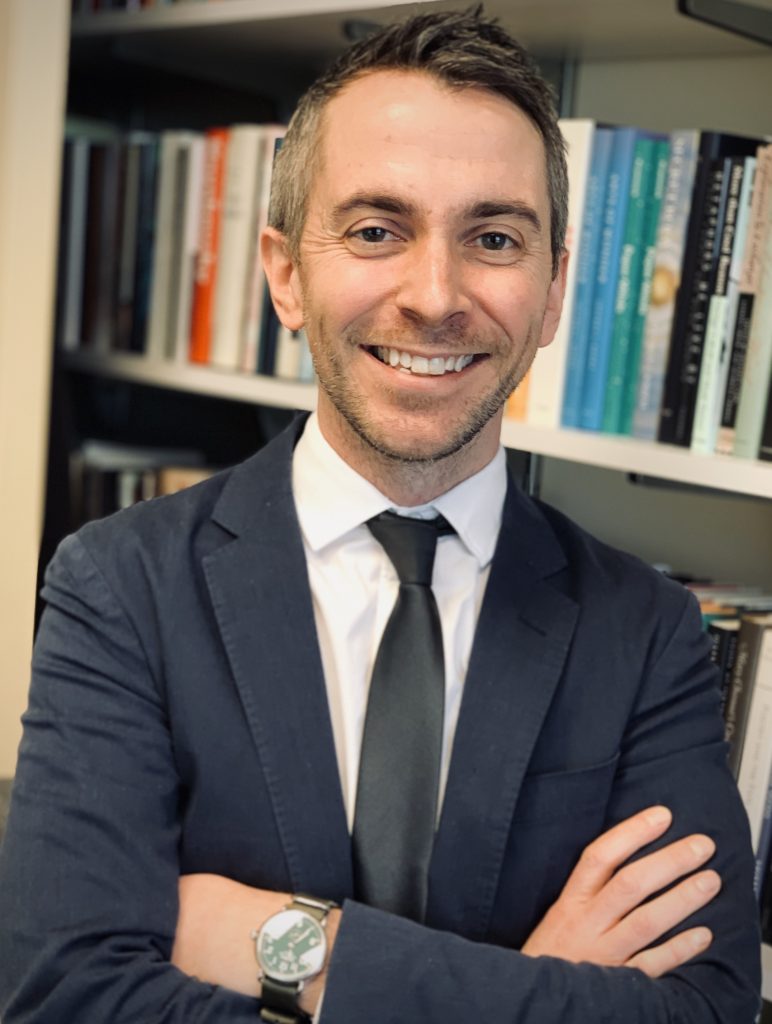Five Questions with Chad Zimmerman, Executive Editor for Economics
Chad Zimmerman recently joined the Press as executive editor in the Books Division, acquiring new titles in economics, business, and public policy. Chad came to us from Oxford University Press, where he worked most recently as a senior editor building a robust list in public health, including books in health economics and policy. We’ve been excited to welcome him not only to the Press but to Chicago, and by way of introduction, we put together some questions about his interests.

What are you looking for in a book, and what kind of project gets you excited?
Voice. That is a terribly nonspecific answer, but hear me out:
Most people who write books are experts in what they’re writing about. Whether their book is any good depends on how they express (and in many cases, limit) their knowledge for the good of the reader. That expression takes the form of their writing voice. And writing voice comprises not just narration, but also how the work is structured.
Reading is a “what’s in it for me?” activity. It is the author’s job to respect their reader and meet them on their level, whether that’s expert or non-expert. Very few authors have the personal eminence to write whatever they want and trust that people will read it. An editor’s job is to remind authors of these things and make sure the work matters.
What topic do you hope to never see another proposal about?
The Economics of Climate Change is a proposal title I see a lot. That doesn’t make it a nonstarter; climate change is the defining issue of our time. The question is whether the proposal offers something new and generous. Some projects amount to little more than an extended economic model. I’m not sure there’s great utility in that.
In your previous acquisitions work, what book are you particularly proud of that speaks to your approach as an editor, and why?
FORKED by UC Berkeley’s Saru Jayaraman, which I published while an editor at Oxford University Press in 2016. Jayaraman is a polymath and a force of nature whose work focuses on the lives and welfare of restaurant workers, especially those living on the $2.13 minimum wage for tipped workers. Her work examined how these policy deficits gave rise to the restaurant industry’s rampant culture of sexual harassment—and, at a societal level, the disproportionate link between restaurant work and working poverty.
The book originated with a cold email from me to Jayaraman, and years later I was fortunate to publish something that felt impactful. And it remains so: the paperback was the first book Alexandria Ocasio-Cortez ever endorsed, and it remains a point of origination in the Fight for $15 and #MeToo.
When you’re not reading book proposals and manuscripts in your field, what kinds of books do you enjoy reading?
Because I am not an economist and only recently became an editor in economics, I’ve been reading a lot of things from people working in this space. The most stirring so far have been Binyamin Appelbaum’s The Economists’ Hour; Branko Milanovic’s Capitalism, Alone; and Luigi Zingales’s A Capitalism for the People.
Meanwhile, fiction piles up. I’m reading Jenny Offill’s Weather in off moments during this first week of our sequestering. Its tone and humor fit the current mood. One thing on my list for this week is to place a big email order with Seminary Co-op, the bookstore in Hyde Park that has been one of the best things about life in Chicago. But this week’s list has slipped some.
You’re new to Chicago—what are you looking forward to most in the city?
I could go on and on here. My spouse and I have two large dogs and two young kids, so the spectrum of things we “look forward to” is spectacularly boring—mostly meals and walks. But living in Hyde Park feels privileged to the point of decadence because everything is beautiful and walking distance. The dogs have commandeered two of the local parks for illegal off-leash running in the mornings, which is something they never experienced in their previous lives. The kids go to a school near the Press’s office. At night I go grocery shopping in beautiful, well-stocked supermarkets.
And I’m excited for baseball games whenever baseball comes back around. As a Cincinnati Reds fan, my childhood was spent asking my parents why the Reds stadium was so filled with Cubs fans. So now I’ll go to Wrigley to exact some modest, pointless revenge. Then I’ll probably become a passing White Sox fan.